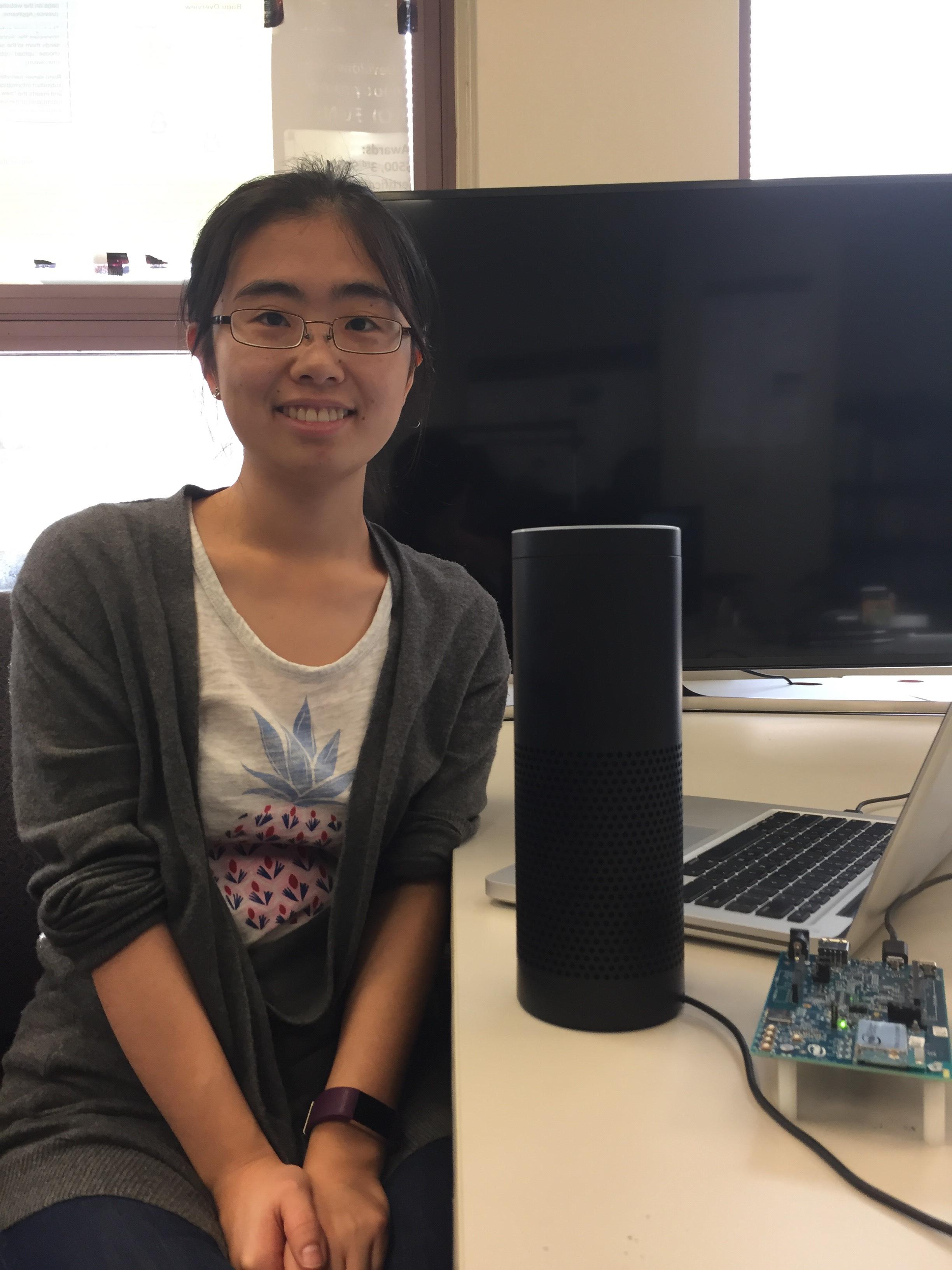Introducing Sofie: A smart operating system for Internet of Everything
 The rise of the Internet of Everything (IoE) is rapidly changing computing, and as the connected things in our world become more of necessities than luxuries, the process of simplifying how people can manage this level of connectivity is important.
The rise of the Internet of Everything (IoE) is rapidly changing computing, and as the connected things in our world become more of necessities than luxuries, the process of simplifying how people can manage this level of connectivity is important.
Conventional operating systems may not be sufficient to manage the large number of "things" embedded in future smart homes. A research team including two Ph.D. students working in the lab of Weisong Shi, professor of computer science, is developing a project called Sofie, an acronym for smart operating system for the Internet of Everything.
Lanyu Xu, a graduate research assistant in computer science, believes that Sofie is better suited for the dynamic architecture of the IoE system. Unlike personal computers, smartphones, and cloud-based systems - which often operate in a fixed environment and use data passively - Sofie is both data-oriented and things-oriented.
"Sofie is sitting between devices and services - as both a service provider of the upper layer and a hardware manager for underlying devices - to provide high-quality data through well-performed things," said Xu.
Sofie is capable of managing the configuration and maintenance of smart devices, including registration and requests to replace ill-performing devices. It can receive a "heartbeat" at regular intervals to ensure that devices are properly connected, and can initiate processes to remedy operational issues.
It also ensures data quality, storage and access. Sofie can use historical records to detect abnormal data and ensure system security. It records device information and event history, and stores file paths - information which is particularly useful for systems that include cameras.
The research team built Sofie on top of the architecture of Home Assistant and demonstrated how Sofie would function in a smart home environment. The system employs a multi-layer design that includes a communications adapter responsible for sending commands to devices and collecting raw data; an event hub, which captures system events and sends instructions to lower levels based on machine learning through communication with the Self-Learning Engine; and a name management layer that helps keep the system devices organized.
"The design of Sofie is quite flexible to accommodate multiple functionality," said Xu, who also noted that the system will also have audio-based functions similar to products like Amazon Echo.
As IoE becomes more pervasive and edge computing presents greater challenges, concepts such as Sofie could represent a significant transformation from traditional operating systems.
This article originally ran in the Fall 2017 edition of Exemplar.